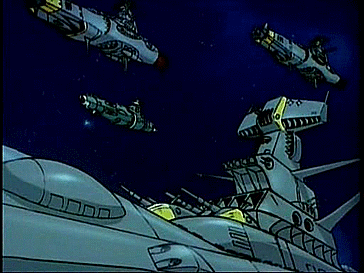Legendary manga artist and anime creator Leiji Matsumoto has passed on, but his significant contributions to animation and especially the space opera genre will not be forgotten.
Matsumoto's work often deals with themes such as love, loss, and humanity's relationship with space, and his style is known for its epic and romantic tone.
One of Matsumoto's most notable contributions to the space opera genre is his manga and anime series, "Space Battleship Yamato" (also known as "Star Blazers" in the United States). The series, which first aired in 1974, follows the crew of the Yamato, a spaceship on a mission to save Earth from an alien race. " Yamato" was a groundbreaking series that helped to popularize the space opera genre in Japan and around the world.
There is evidence to suggest that the anime series "Space Battleship Yamato" had a significant influence on the creation of the "Star Wars" franchise.
In particular, the design of the Imperial Star Destroyers in "Star Wars" bears a striking resemblance to the design of the Yamato spaceship in "Space Battleship Yamato". As both ships are long and wedge-shaped, with a distinct bridge at the front and engines at the back. The space dogfights along with comparisons between Analyzer and R2 D2, the Gamilon Empire and the Galactic Empire also lends a modicum of evidence of how Star Wars was influenced.
Additionally, "Star Wars" creator George Lucas has acknowledged the influence of Japanese cinema and anime on his work, including "Space Battleship Yamato". In fact, Lucas reportedly considered hiring "Yamato" director Leiji Matsumoto to work on the special effects for the first "Star Wars" film. although it's impossible to say for certain how much of an influence "Space Battleship Yamato" had on "Star Wars”, it's obviously clear that the two franchises share some similarities in terms of design and storytelling, and that Japanese media played a role in shaping Lucas's vision for the galaxy far, far away.
Matsumoto's other notable works include "Galaxy Express 999" and "Captain Harlock". "Galaxy Express 999" is a manga and anime series that follows a young boy named Tetsuro as he travels through space on a train that is headed for a planet where he can receive a mechanical body. This series explores themes such as life, death, and immortality, and it has been praised for its deep and emotional storytelling. "Captain Harlock" is a manga and anime series that follows the adventures of a space pirate named Captain Harlock. The series is known for its action-packed battles and its exploration of themes such as freedom and rebellion.
Overall, Leiji Matsumoto's contributions to the space opera genre and pop culture in general, have been significant and enduring and his work has inspired generations of creators and has helped to shape the genre into what it is today.





